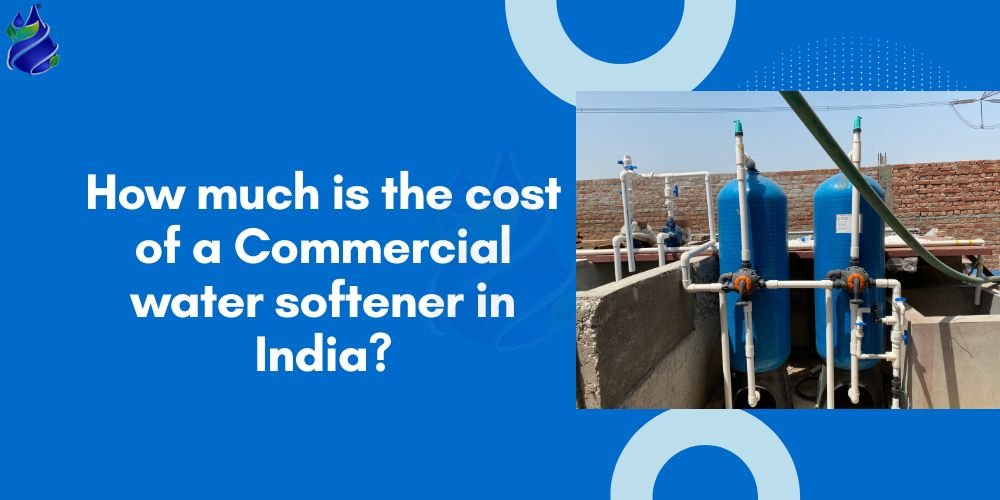
Introduction
Pure drinking water is essential to human health since it is the most important element in maintaining life and guaranteeing the proper functioning of the body. Its significance stems from the fact that water is essential for the body to function. Water facilitates the movement of nutrients and oxygen into cells, helps digestion, and controls body temperature, among other physiological functions. Additionally, drinking pure water is essential for eliminating waste and toxins from the body, which helps the liver and kidneys, among other organs, go through the detoxification process. It is essential for preserving the skin's health, mental clarity, and general well-being. The danger of contracting waterborne illnesses rises when people lack access to clean, uncontaminated water, underscoring the vital role that clean drinking water plays in preserving human health and promoting healthy body functions.
Commercial Water Softener Plant
An industrial water softener plant manufacturer in India that provides water softener plants is a specialized system that lowers the concentration of minerals like magnesium and calcium ions in hard water. High concentrations of these minerals in hard water can lead to problems like scale accumulation in pipes and appliances. The water softener, which is usually a tank filled with resin beads coated in sodium ions, is the main part of a water softening plant. The calcium and magnesium ions are drawn to the resin as hard water moves through this resin bed, pushing out the sodium ions in the process. Water is made softer by this ion exchange process, which eliminates the hardness of minerals. By washing away accumulated minerals, periodic regeneration of the resin beads with a brine solution ensures that the plant can continue to soften water.
- A commercial water softening plant which can be easily availed through a water softener plant manufacturer is a full-featured system intended to handle hard water on a bigger scale, usually for use by businesses or industries. Hard water, which has high concentrations of minerals including calcium, magnesium, and other metal ions, presents several difficulties that are addressed.
- These minerals can interfere with a number of industrial processes, lead to scaling problems, and lower equipment efficiency. The commercial water softening plant is made up of multiple parts. Pre-treatment steps, such as filtration procedures to get rid of bigger particles and sediments, are the first. After that, the water softener, which is the brains of the system, uses ion exchange technology to get rid of the hard minerals.
- Large resin tanks full of specific resin beads, which draw in and trap calcium and magnesium ions and exchange them for sodium or potassium ions, are frequently used as the basis for these water softeners.
To handle the increased water flow rates and rigorous usage in commercial settings, these systems are far larger and more durable than home water softeners. They might also have several tanks to maintain a steady supply of softened water while one tank is being replenished. To maintain their effectiveness, commercial water-softening plants require periodic regeneration and routine maintenance. To guarantee steady and efficient softening of incoming water, the resin beads are cleaned and replenished with a brine solution during regeneration.
For businesses in the hospitality, manufacturing, agricultural, and healthcare sectors—where the quality of the water can have a big impact on operations, equipment longevity, and product quality—commercial water softening facilities are essential. These systems minimize scaling problems and enhance several industrial processes by guaranteeing a consistent supply of softened water.
Cost of setting up a water softener plant in India
A commercial water softener plant for home price in India can vary greatly depending on several criteria, including brand, capacity, technology, extra features, and the supplier's pricing strategy. Depending on the system's size and complexity, the cost of a commercial water softening system in India can range from about ₹50,000 to ₹10 lakhs or more. Commercial water softeners with lower capacities, intended for moderate use in small organizations, can range in price from ₹50,000 to ₹2 lakhs. Nevertheless, larger-scale industrial-grade water softeners can cost anywhere from ₹2 lakhs to ₹10 lakhs or more. These units are ideal for heavy-duty use in factories or large commercial businesses.
The kind of resin used, the regeneration procedure, the automation degree, the brand's reputation, the guarantee, the installation, and the cost of continuing maintenance are some of the variables that affect the price. The entire cost of ownership is also impacted by the operational costs associated with the use of water and power during the softening process. It's advisable to get in touch with reliable suppliers or manufacturers in India to receive an accurate cost estimate for a commercial water softening system customized to your needs. They can provide quotations based on a variety of parameters, including the facility's size, water usage, and quality. To make an informed buying decision, compare bids from several suppliers and assess the features and after-sales support provided.
Conclusion
For assistance with the establishment of any of the aforementioned treatment plants, please contact Trity Environ Solution at +91 9821030072 or via email at enquiry@trityenviro.com. We are manufacturers of commercial RO plants, industrial RO plants, sewage treatment plants, water softener plants, and effluent treatment plants.


